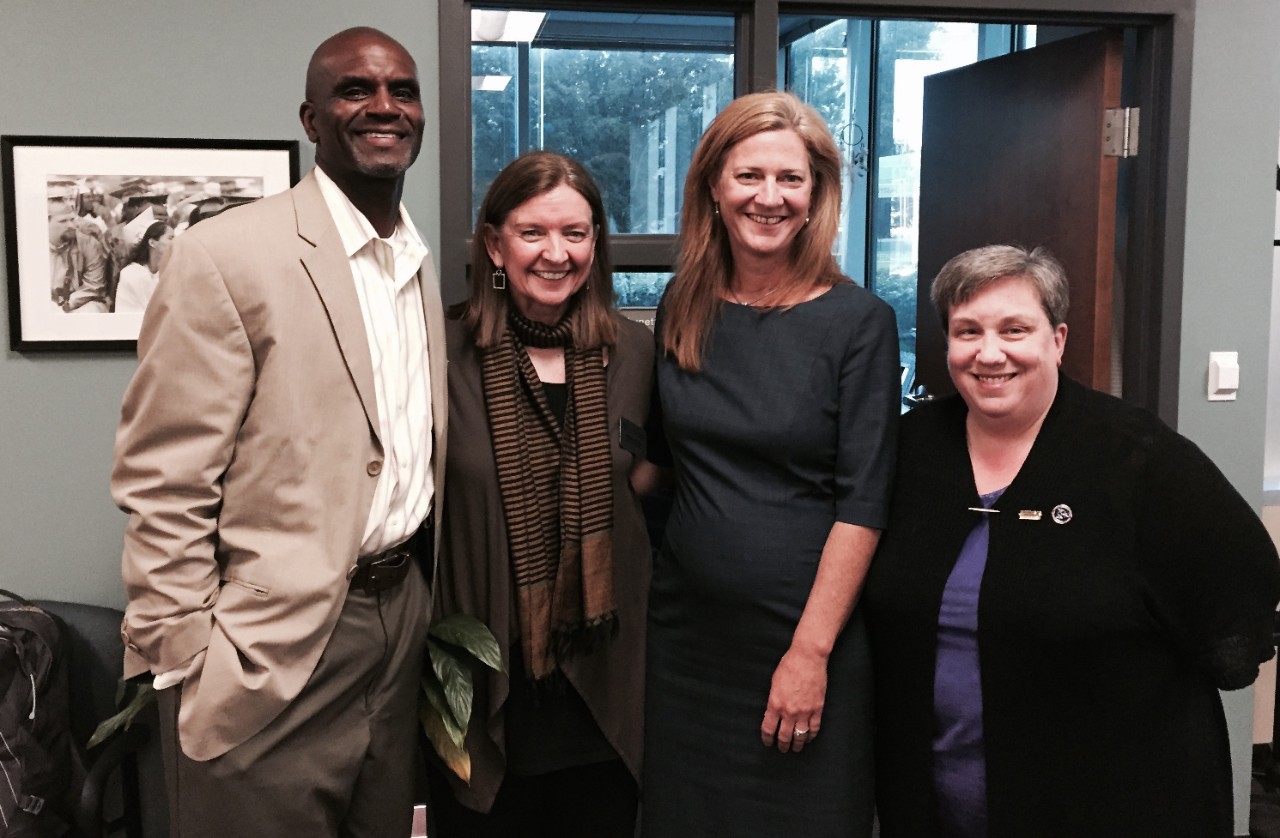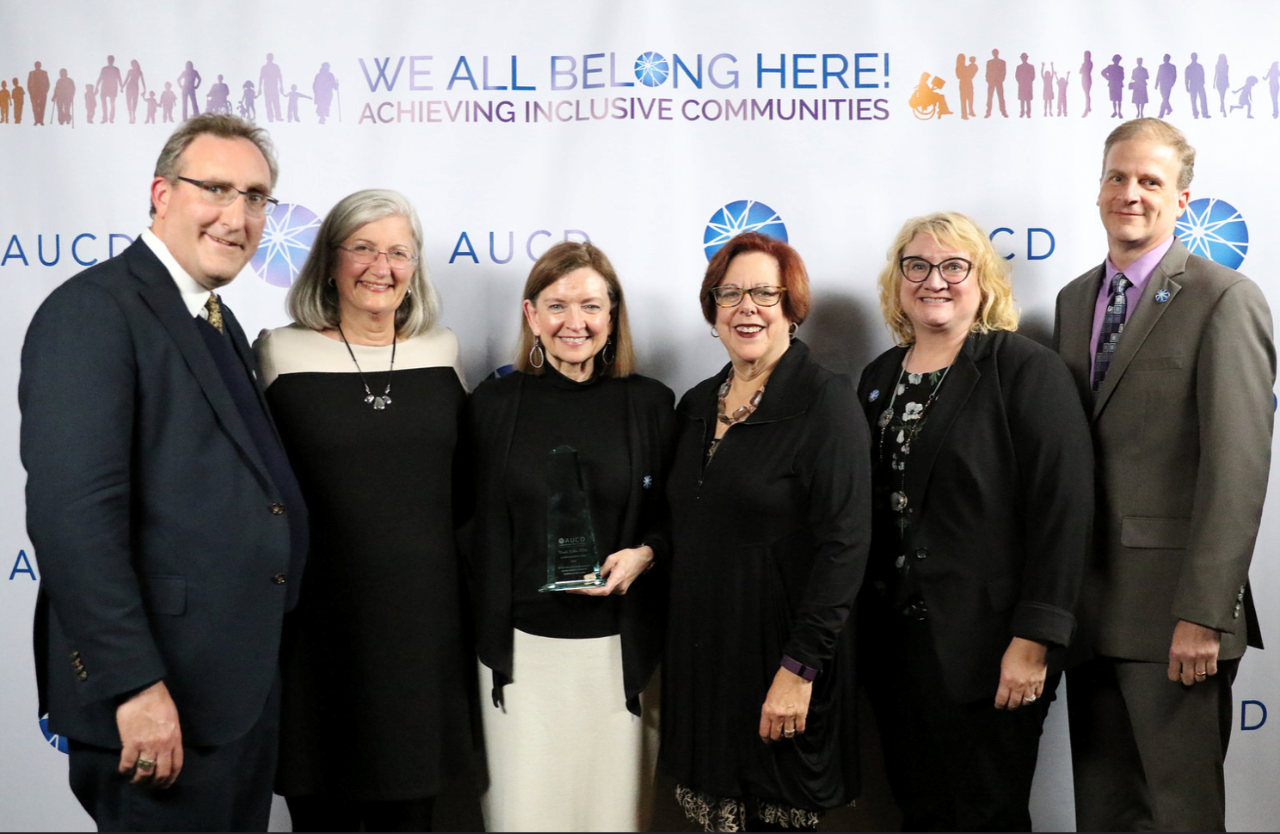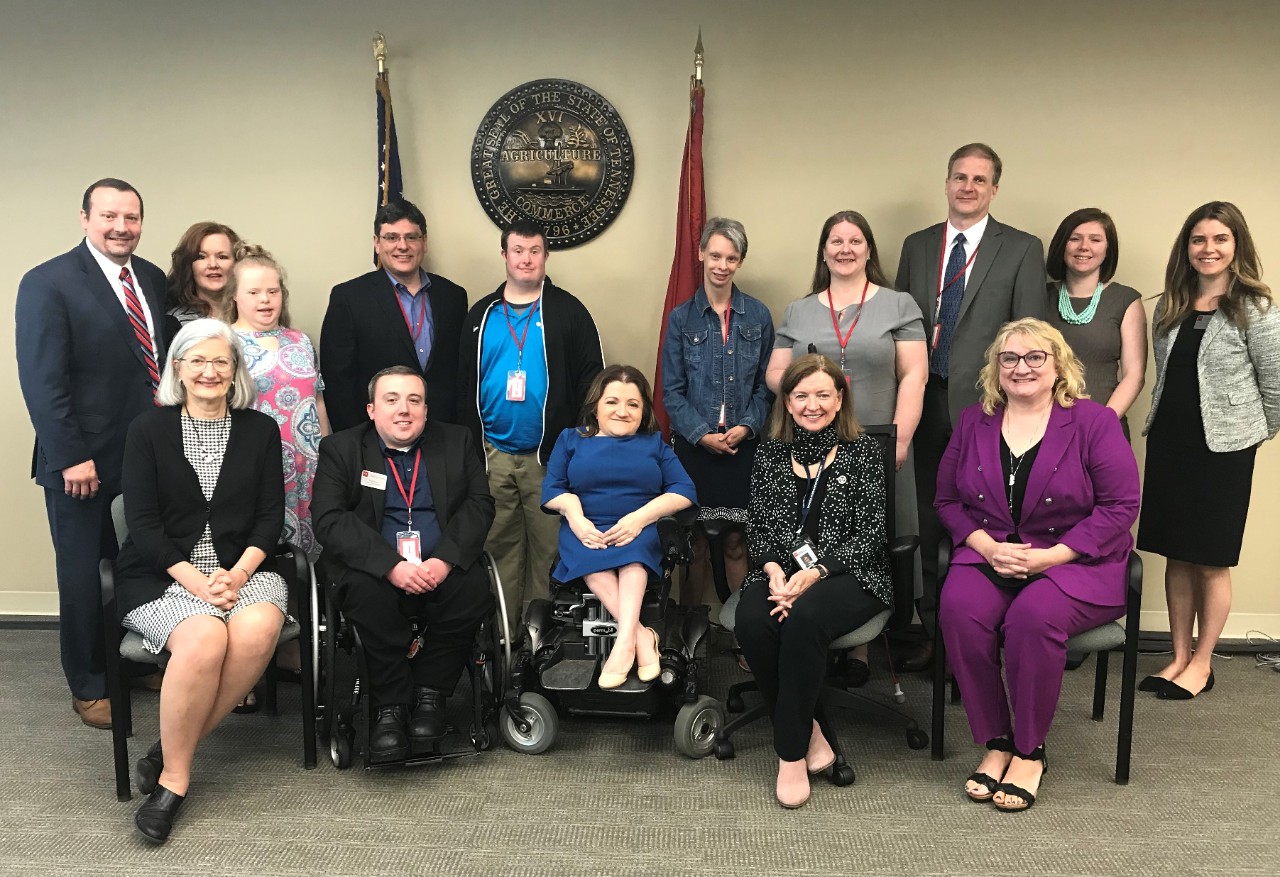Breaking Ground 108 - Forward Together: A 33-Year Legacy
by Jolene Sharp, Chief Public Information Officer, TN Council on Developmental DisabilitiesWanda Willis has spent more than three decades building the Tennessee Council on Developmental Disabilities into the agency it is today. Her leadership grew the Council from a tiny, poorly understood department to an effective, independent agency leading on a host of key disability issues. Today, the Tennessee Council is widely seen as one of the best in the nation.
“Under Wanda’s leadership, the Council has worked diligently to affect change for people with intellectual and developmental disabilities, their families, and communities through leadership at state and national levels,” says Donna Meltzer, CEO of the National Association of Councils on Developmental Disabilities.
“The Tennessee DD Council has been a leader through national initiatives as well as through policy advocacy. Wanda herself has been a true leader for our entire network, serving on the national Board of Directors and even as the President of the Board of NACDD. Wanda’s calm, steady, and smart leadership has made her a mentor to many – myself included – in the DD Council network. Through her leadership, she has made her Council and our national organization better in every way.”
A career of such breadth and depth is hard to summarize. But if you want to understand what drives Wanda’s impact, there is only one place to start: the federal Developmental Disabilities Act.
Every staff member will tell you reading that Act was their first assignment on joining the Council. Wanda speaks often about the wisdom of the people with disabilities and families who helped craft that law more than 50 years ago. Wanda has proven that its core vision and values still offer a formula for lasting, positive change.
Wanda’s genius has been her ability to use the Developmental Disabilities Act as a blueprint for bringing people together to act on real solutions. In work that can often be confrontational, Wanda invites people in. She listens to understand. She digs deeper. She disarms defenses. She is undaunted by obstacles. Her passion and leadership keep everyone invested and working together until there is a way forward.

Wanda understood early on that the Developmental Disabilities Act gave councils a unique role: positioned within state government, with an eye on the entire service system, but guided by citizen Council members living the disability experience. She saw that on the Council, leaders of key disability services could sit at the table with people who needed and experienced those services. She built up a staff that could grow those connections between services and citizens and use them to chart a path to real change.
The Developmental Disabilities Act did not create councils alone. It created two other arms of this work that join councils to form a state Developmental Disabilities Network. Protection and advocacy agencies form the legal arm of the network (Disability Rights Tennessee in our state). University centers of excellence in developmental disabilities form the research and training arm (two in our state: the University of Tennessee Center on DD and the Vanderbilt Kennedy Center of Excellence on DD). Councils are the systems change arm.
Wanda saw that this three-part network could do much more together than any one part could do alone. The result is a Developmental Disabilities Network that works more closely together in Tennessee than in any other state. Wanda also saw Centers for Independent Living as close partners and led work to bridge that statewide network with the Developmental Disabilities Network.

Leadership from the Administration on Community Living – the federal agency that funds and oversees all Developmental Disabilities Act programs and Centers for Independent Living – visited Tennessee three different times to see these partnerships first-hand. The national Association of University Centers on Disabilities chose Wanda for its lifetime achievement award in 2018. The award was a recognition of her role in strengthening the work of the Developmental Disabilities Act, reaching far beyond Tennessee or even councils nationally.
Andy Imparato was executive director of the Association at the time of Wanda’s award. (He is now executive director of Disability Rights California.)
“For me, Wanda Willis embodies the spirit of the DD Act envisioned by Elizabeth Boggs, Eunice Kennedy Shriver, and other key shapers of the law and the network. Wanda is strategic, collaborative, visionary, and values-driven, just like the DD Act. I am grateful for her leadership, her impact, and her legacy in Tennessee and beyond.”
Wanda is the first to admit that change is often much harder and takes much longer than anyone wants. In a career crowded with successes, the losses still sting. She knows there is much more work to be done. But her optimism is contagious as she talks about her retirement in January and this transition for the Tennessee Council. She leaves the agency positioned to be a force for change long into the future.

That forward momentum can be seen in the perspectives of our Developmental Disabilities Network partners, which follow. They will highlight some of the recent and ongoing work our agencies have done together, under Wanda’s vision and guidance. These projects show the real-world impact across our state. The approach to each project bears her imprint: listen to the voices of people with disabilities and families, understand the need and opportunity, gather partners, and take action together.
That formula is Wanda’s legacy, born in the Developmental Disabilities Act and brought to life over 40 years of service. It is also this Council’s road map to continued positive change for people with disabilities and their families in Tennessee.